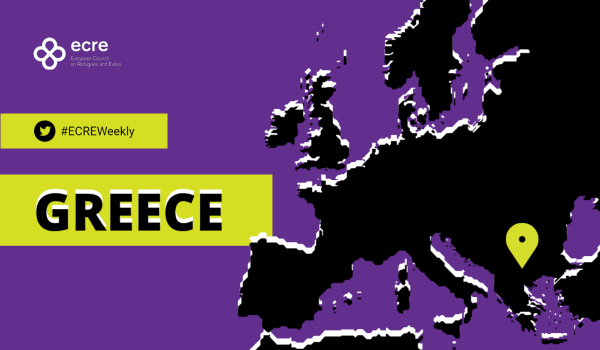Executive director for the European Border and Coast Guard Agency (Frontex), Hans Leijtens, visited Athens amid speculations of a decrease in the agency’s engagement in Greece. The situation for refugees and asylum seekers remains dire according to new NGO reports.
Media investigations of the circumstances of the deadly Pylos shipwreck continue to challenge Greek authorities’ narrative and point to the responsibility or implication of the Hellenic Coast Guard. On 26 July, EU Ombudsman Emily O’Reilly launched an investigation into the role Frontex played in one of Pylos shipwreck, the deadliest migrant shipwrecks in recent history. “A tragedy of this magnitude requires all those involved to reflect on their responsibilities and to be clear to the public who is accountable for these deaths. My Office will focus on the role of Frontex as we try to piece together the events that led to the capsizing of the boat and the deaths of at least 500 people”, she said, adding that “Migration to Europe will continue and it is up to the EU to ensure that it acts in a way that maintains fundamental rights and does not lose sight of the human suffering that compels people to seek a better life beyond their home countries”. Meanwhile, the newly appointed Greek Migration Ministe, Dimitris Kairidis, focuses on stopping people from arriving in Europe: “We support the launch of an ‘Operation Sophia-plus’ to break up migrant smuggling routes from Libya,” he told media, adding: “EU vessels would station in the Libyan territorial waters with the agreement of the local government, which I am hopeful will accept”. A recent investigation by Lighthouse Reports, Der Spiegel, SIRAJ, El País and Reporters United revealed how: “The lead smugglers behind the Pylos shipwreck are closely linked to General Khalifa Haftar, the Libyan warlord who EU leaders are partnering with to curb migration”. Frontex has been forth and back over a potential suspension of operations in Greece due to documented and persistent human rights violations including systematic pushbacks. Executive director, Hans Leijtens, recently visited Athens “to meet with the new Greek authorities and discussed future cooperation and the challenges at the external borders”. The agency head stated: “During my 2-day visit in Athens I had the opportunity to engage in constructive dialogue with the new Greek authorities. A clear message echoed throughout our discussions: the need for enhanced effectiveness in achieving our mission & continuous adherence to the legal framework”. Leijtens further added: “Any concerns or questions are being thoroughly investigated. We’re committed to transparency & accountability in handling complexities of our mission to protect EU borders. Looking forward to working closely with new Greek government”. Media have speculated in or referred to discussions of a potential decrease of Frontex presence in Greece due to an alleged downtick of arrivals from Türkiye. The agency currently deploys 260 officers, patrol vessels, aircraft, and specialized equipment.
Meanwhile, the situation for refugees and asylum seekers in Greece remains dire. On 18 July, Euro-Med Human Rights Monitor published a statement warning that: “Greece’s starving of refugees and asylum seekers is causing a dangerous crisis”. The organisation reiterates that: “In Greece, recognised refugees – who should be the most safeguarded, given their precarious status—are already cut off from financial assistance immediately after being granted protection, and booted from reception centres within 30 days. Refugees should receive support to find a job, study, or access certain social benefits, but various bureaucratic obstacles make access to such support extremely difficult, such as a general lack of access to residence permits, travel documents, and temporary social security numbers, as well as a short window of only 30 days to enjoy any benefits”. A brief from Refugee Support Aegean (RSA) provides an overview of Greece’s compliance with a landmark ruling by the European Court of Human Rights (ECtHR) 12 years ago. The court found “systemic deficiencies in the Greek asylum procedure, reception and detention conditions breached the prohibition of inhuman and degrading treatment, and that transfers of asylum seekers to Greece under the Dublin Regulation amounted to refoulement” in the case M.S.S. v. Belgium and Greece. The status includes a long list of shortcomings including lack of access to asylum in mainland Greece, lack of direct access to register claims, and lack of recognition of claims by Greek authorities resulting in arbitrary arrests and removal detention while cases are pending. The organisation further points to the designation of Türkiye as a safe third country, resulting in arbitrary denial of protection and legal limbo for over 10,000 refugees” despite “critical evidence on the Turkish asylum system, including case law of the European Court of Human Rights, and consistently misapply human rights standards”. RSA also notes how “Appeals Committees dismiss thousands of appeals and issue deportation orders without an assessment on the merits, on the sole ground that refugees do not appear in person or do not submit a camp residence certificate within short deadlines”.
For further information:

